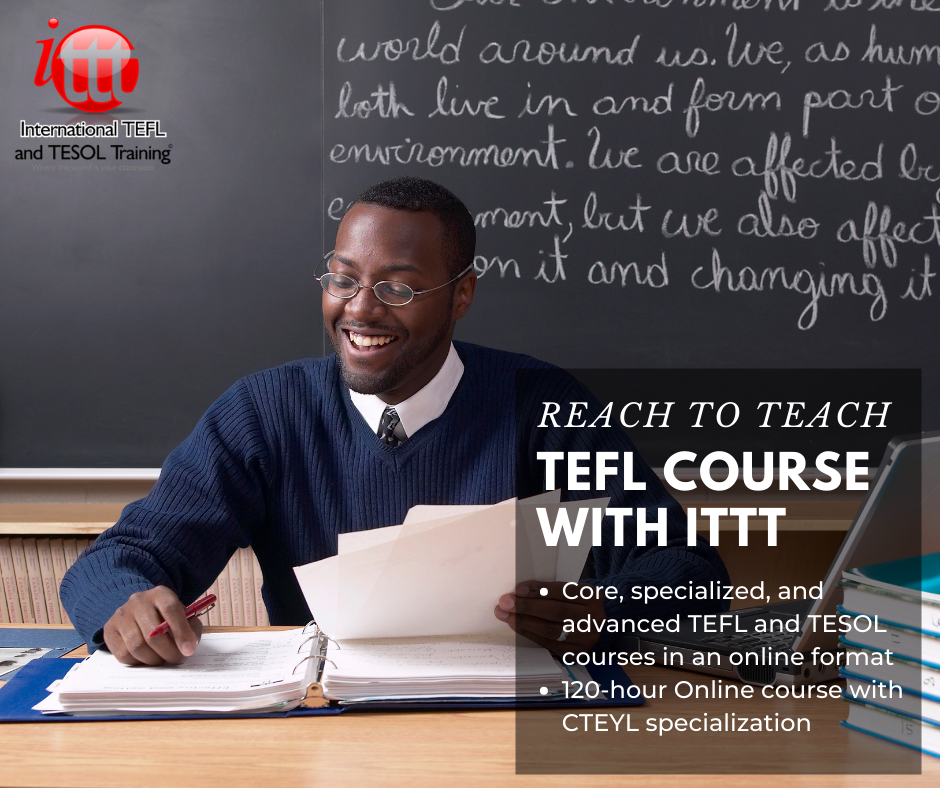REACH TO TEACH TEFL COURSE DIRECTORY
TEFL DIRECTORY: Learn Everything You You Need To Know About Taking A TEFL COURSE
UPDATED April 2025 These courses are recommended by our teachers and by our schools as being the best TEFL courses for teaching abroad.
What kind of TEFL course should I take to be best prepared for teaching abroad? After reading this you will be able to decide if a TEFL course is the right thing for you, which courses we recommend, and how to get the best possible price.In the past two decades we have seen a huge shift in TEFL qualification. TEFL certifications are the norm in Asia. Teachers are expected to have at least a 120-hour certification to teach in Asia. This is a result of the teaching job market becoming increasingly competitive.
Schools have become more selective about who they hire and a TEFL qualification is at the top of their hiring requirements.ONLINE TEFL COURSE CATEGORY: ITTT TEFL Courses
ITTT provides core, specialized, and advanced TEFL and TESOL courses in an online format. Whether you are looking for a gap-year experience or a career in teaching, ITTT has the course that is right for you.
Their best course is the 250-hour TESOL Diploma, which is recommended for teachers who are applying for jobs in competitive job markets such as the UAE. The 120-hour Online course with CTEYL specialization is perfect for entry-level teachers interested in going to Asia because most jobs involve teaching young learners. ITTT also offers combined (in-class/online) courses which are great for South Korea public schools. ALL Reach to Teach teachers receive 10% OFF ITTT courses. To receive the ITTT promotional price, you must use this link: ITTT TEFL Course Discount LEARN MORE ABOUT ITTT TEFL COURSES





